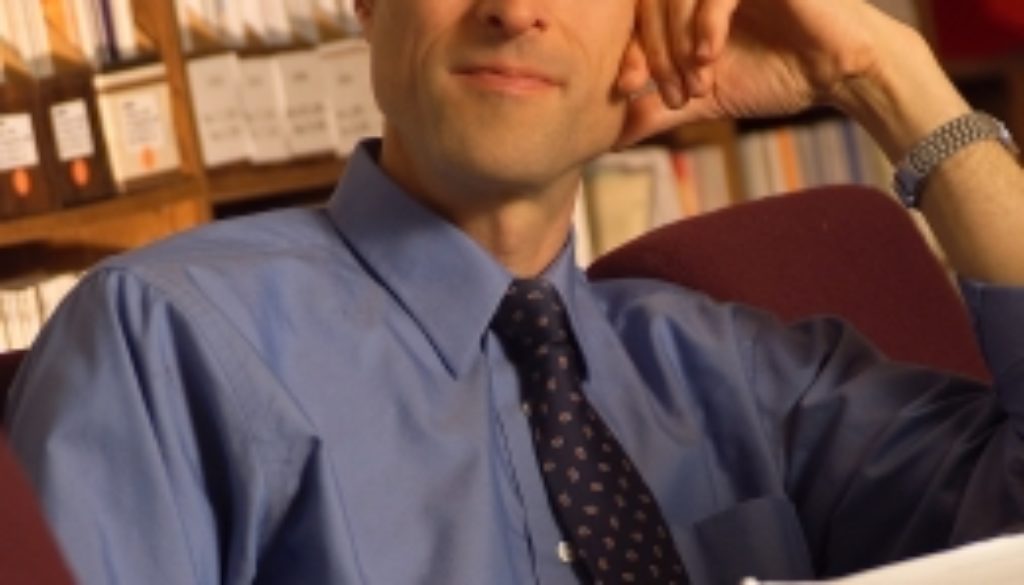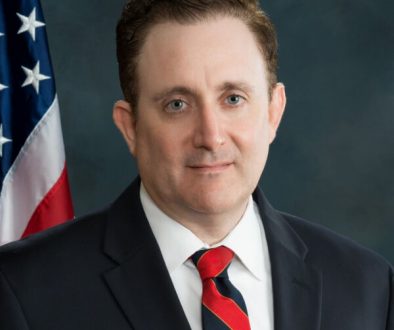Neal Barnard on diabetes
In 2003 Neal Barnard was awarded a $350,000 research grant from the National Institutes of Health to study the effect of a low-fat vegan diet on diabetes. In this interview with Dr Andre Menache, Dr Barnard explains how people were able to reduce their medications and sometimes come off them entirely.
 Neal D. Barnard, MD, is a leader in preventive medicine, nutrition, and research. As an adjunct associate professor of medicine at the George Washington University and a researcher funded by the National Institutes of Health, he has led key research studies to improve the health of people with diabetes, obesity, lipid disorders, and other serious health problems, and to improve nutrition in schools and in the workplace.He is the editor-in-chief of the Nutrition Guide for Cliniciansand the author of more than 15 books on nutrition and health for lay readers. His research has been cited by the American Diabetes Association and the American Dietetic Association in official policy statements on healthful diets. He is a Lifetime Member of the American Medical Association.Dr. Barnard’s articles have appeared in Diabetes Care,The American Journal of Clinical Nutrition, The American Journal of Medicine, Pediatrics, The Journal of the American Dietetic Association,Scientific American, The American Journal of Cardiology, Obstetrics & Gynecology,Lancet Oncology, Preventive Medicine, and many other scientific and medical journals. He is a frequent lecturer at scientific societies and a peer-reviewer for many medical journals.He received his M.D. degree at the George Washington University School of Medicine in Washington, D.C., and completed his residency at the same institution. He practiced at St. Vincent’s Hospital in New York before returning to Washington to found the Physicians Committee for Responsible Medicine (PCRM) in 1985. PCRM is a nationwide group of physicians and lay supporters that promotes preventive medicine and addresses controversies in modern medicine. He later initiated the Cancer Project, providing nutrition information for cancer prevention and survival, and the Washington Center for Clinical Research, a center for nutrition-related studies.
Neal D. Barnard, MD, is a leader in preventive medicine, nutrition, and research. As an adjunct associate professor of medicine at the George Washington University and a researcher funded by the National Institutes of Health, he has led key research studies to improve the health of people with diabetes, obesity, lipid disorders, and other serious health problems, and to improve nutrition in schools and in the workplace.He is the editor-in-chief of the Nutrition Guide for Cliniciansand the author of more than 15 books on nutrition and health for lay readers. His research has been cited by the American Diabetes Association and the American Dietetic Association in official policy statements on healthful diets. He is a Lifetime Member of the American Medical Association.Dr. Barnard’s articles have appeared in Diabetes Care,The American Journal of Clinical Nutrition, The American Journal of Medicine, Pediatrics, The Journal of the American Dietetic Association,Scientific American, The American Journal of Cardiology, Obstetrics & Gynecology,Lancet Oncology, Preventive Medicine, and many other scientific and medical journals. He is a frequent lecturer at scientific societies and a peer-reviewer for many medical journals.He received his M.D. degree at the George Washington University School of Medicine in Washington, D.C., and completed his residency at the same institution. He practiced at St. Vincent’s Hospital in New York before returning to Washington to found the Physicians Committee for Responsible Medicine (PCRM) in 1985. PCRM is a nationwide group of physicians and lay supporters that promotes preventive medicine and addresses controversies in modern medicine. He later initiated the Cancer Project, providing nutrition information for cancer prevention and survival, and the Washington Center for Clinical Research, a center for nutrition-related studies.
He is a frequent lecturer at scientific conferences, with presentations to the American Diabetes Association, American Public Health Association, the World Bank, the National Library of Medicine, and many other medical and scientific organizations. He is also frequently called upon by the news media and popular broadcast programs to discuss health and nutrition. He has appeared on Oprah, Ellen, Today, Good Morning America, the Early Show, and many other broadcast programs. His work on nutrition and diabetes was the subject of an hour-long PBS program in March 2010.
Antidote Europe (AE): Could you briefly tell our readers how you came to create an organisation with more than 8,000 physician members? And could you describe your journey from being a very successful psychiatrist to prescribing low fat vegan diets?
Neal Barnard (NB): In 1985, I was in my first year of practice, working at a hospital in New York. I was running a psychiatric unit, but also had a busy consulting practice on the medical wards. While I was there, it struck me that physicians generally do an excellent job of diagnosing illnesses, and sometimes we“re pretty good at treating them. But we were—and still are—abysmal when it comes to prevention. We didn“t do anything about a heart attack until it came through the emergency room door. The same was true for cancer, diabetes, hypertension, obesity, and so many other problems that cause so much human misery. I felt it was time for doctors to become advocates for prevention and particularly for nutrition. At the same time, I had become concerned about ethical issues in research. Human research violations had been at issue in many cases, perhaps most notably the Tuskeegee experiments in which black men with syphilis were left untreated. And animal experiments were almost totally unregulated. Doctors needed to speak out.
AE: In 2003, you were awarded a US $350,000 research grant from the National Institutes of Health to study the effect of a low-fat vegan diet on diabetes. Could you give our readers an account of the results of that study and the response you received from the medical establishment?
NB: The diet we tested was (1) vegan, (2) low in fat, and (3) low glycemic-index (meaning that it was rich in beans, pasta, fruit, and other foods that tend not to perturb blood glucose very much). In 99 people with type 2 diabetes, we compared this diet to a more conventional regimen that involved calorie limits, carbohydrate counting, etc.
The vegan diet turned out to be more effective at helping the volunteers lose weight and improve their blood glucose and cholesterol. Many people were able to reduce their medications and some got off them completely. Because this was accomplished without exercise and without any limits on how much people ate, they found it to be surprisingly easy. The results were published in Diabetes Care, the American Journal of Clinical Nutrition, and other journals.
Since that time, PCRM has put the details of the diet on its Web site, and I have prepared a book to show laypeople how to do it themselves, and my hope is that people will give it a try. The American Diabetes Association now mentions our approach in its Clinical Practice Recommendations, so apparently a vegan diet has now become mainstream.
AE: Your organisation has played a leading role in phasing out the use of animals in the undergraduate medical school teaching curriculum. As a result of your pioneering efforts in this field, the US will probably be the first country in the world to completely phase out this practice. Could you outline the strategy you applied, to serve as a guide for similar-minded organisations in other countries?
NB: When I was in medical school, our pharmacology class was told it had to participate in a “dog lab” in which each group of 4 students would administer a variety of drugs to a live dog and record their physiological effects, after which the dog would be killed. I found the suggestion to be both unethical and completely unnecessary, since we had already been taught about these drugs and we already knew how they worked. To make a long story short, I refused to attend the laboratory, but turned in the predicted results anyway, and am now on the faculty of that medical school—which, incidentally, later eliminated the “dog lab.” When I started PCRM, I felt that these labs really needed to be replaced. We began by simply distributing information on alternatives to medical students through medical student conferences and directly into their mailboxes at medical school. This led many students to request alternatives and to complain about the laboratories to their instructors. For many schools, that was all it took to bring about the transition. The American Medical Student Association was also very interested in advocating for students who did not want to be forced to participate in what they viewed as an unethical experience. Some schools, unfortunately, have been very slow to change. In those cases, we have worked with the school administrators to the extent we can, and, for those that have been more recalcitrant, we have supported a media campaign to let the public weigh in. It has been very effective. Nearly every U.S. medical school has now dropped its animal teaching laboratories. The same is true for Advanced Trauma Life Support courses.
AE: What do you consider to be your most defining achievement and why?
NB: We are a long way from defining any crowning achievements. Our work has really only just begun. The American and European populations are in the worst physical shape they have ever been in, with disastrous levels of obesity and other health conditions. And while we are working hard to reverse those trends, unhealthy eating habits—meaty, cheese-laden diets—are spreading to Asia and elsewhere, with epidemics of diabetes and heart disease following close behind.
On the other hand, the number of people who are improving their diets is also bigger than it has ever been. It is essential to find ever-more-creative ways to help people adopt healthier habits. Ethical views toward humans and animals are improving slowly, but there are still many who retain the notion that animals can be treated as if they are blocks of wood. I am hopeful that the new scientific understanding of animal sentience—their complex communication patterns, of course, and also their unfortunately acute ability to suffer in stressful environments—will push scientists to understand that we need to replace them with non-animal research methods with all due haste.
AE: Thank you very much for giving up your time to take part in this interview. Do you have any closing thoughts or are there any additional comments you would like to share that were not covered in the interview?
NB: We very much enjoy comparing notes with other organizations and working jointly. I invite readers to visit our web site (http://www.pcrm.org  ) and to work with us.
) and to work with us.




